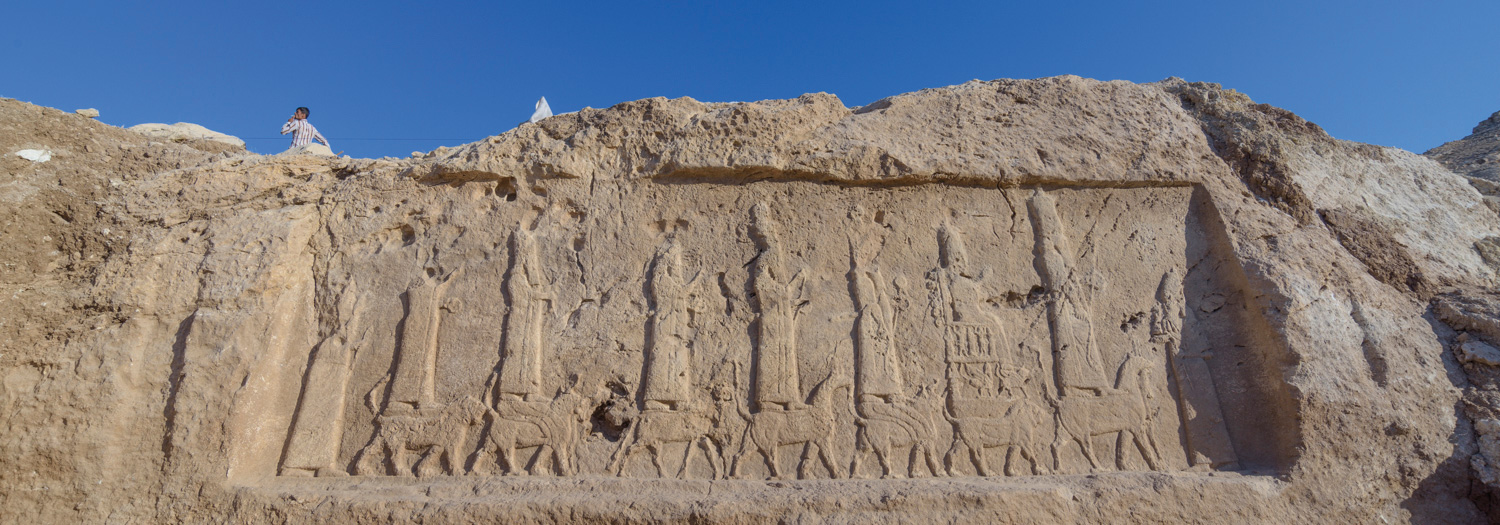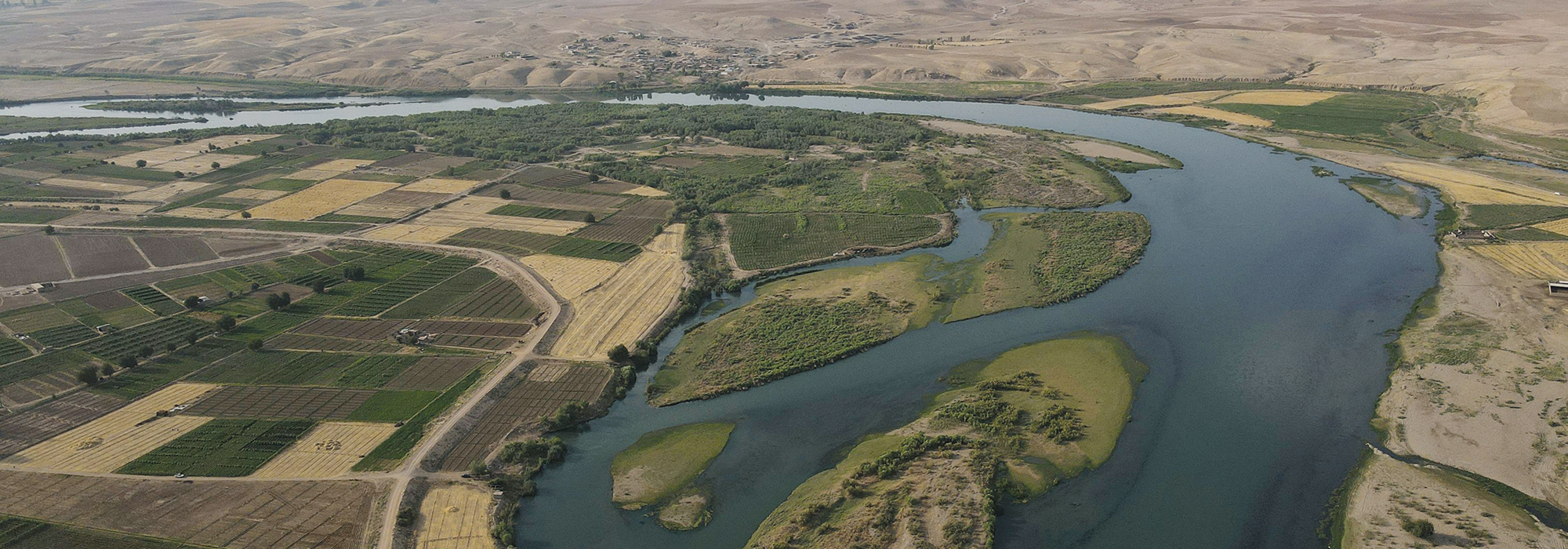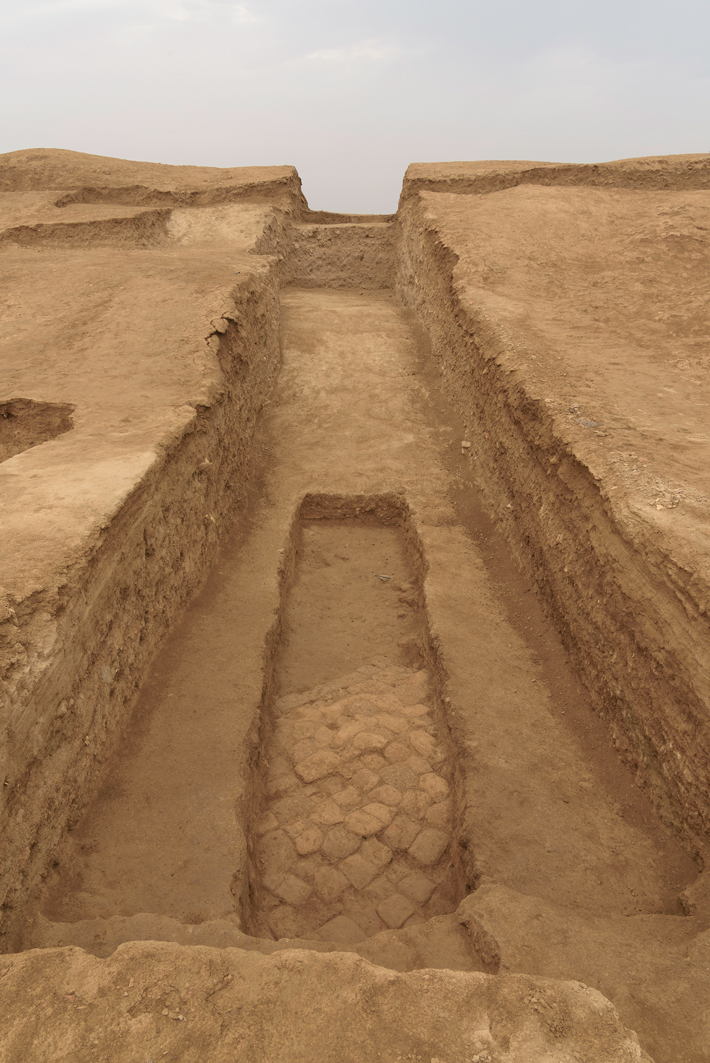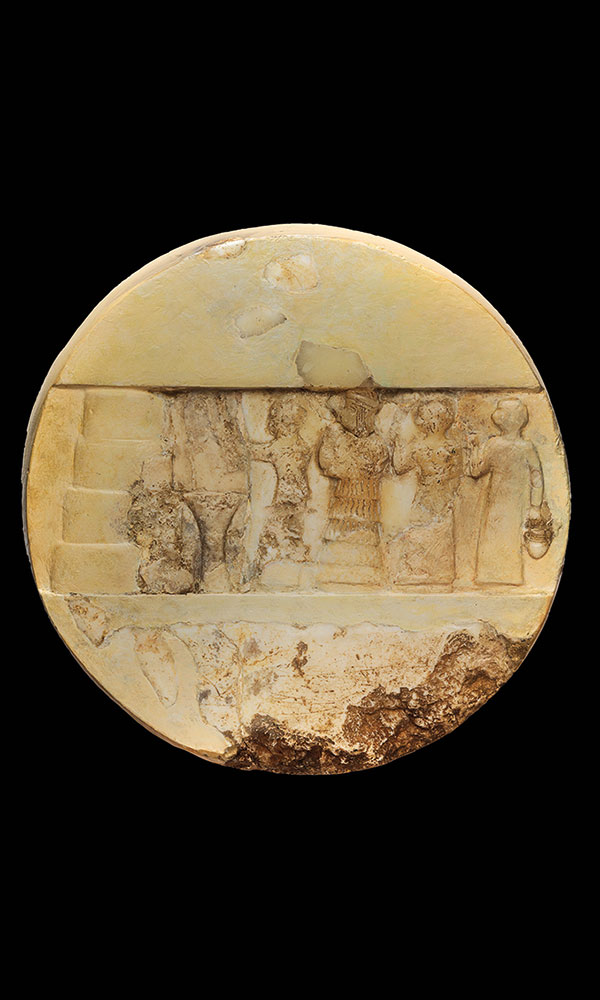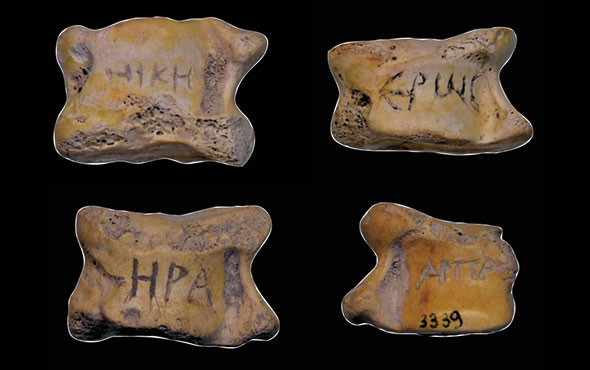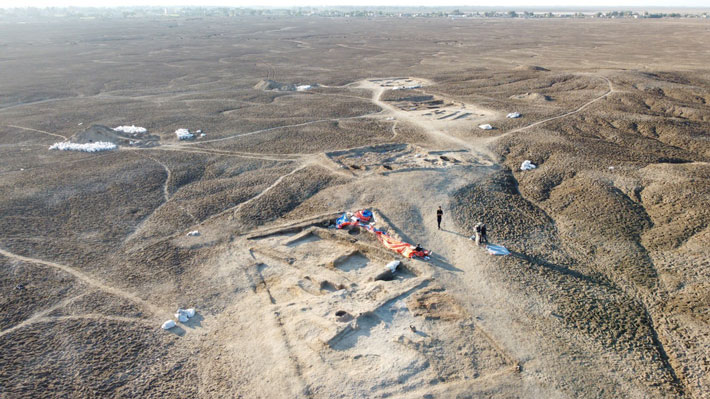
PHILADELPHIA, PENNSYLVANIA—According to a statement released by the University of Pennsylvania, a public eating space or tavern dated to 2700 B.C. has been uncovered at Lagash, an ancient city site located in southern Iraq. The tavern was equipped with benches; a zeer, or clay pot used to keep food cool; an oven; and storage vessels containing traces of food. Archaeologist Holly Pittman of the University of Pennsylvania said the tavern was partially open-air and partially a kitchen area. And although the city was an important political, economic, and religious center, Pittman explained that it also supported a large population that produced food and crafts. Earlier excavations have revealed a pit of red clay, a pit of sand, kilns, and waste materials from pottery manufacturing; streets; alleyways; and traces of buildings. One building, thought to have been used by the potters, held benches and a table. A nearby domestic kitchen space held clay jar stoppers, bowls containing traces of food, and a grinding stone. A toilet was found in another room in the dwelling, Pittman added. She and her colleagues are also evaluating the ancient city’s access to water, noting that the Tigris-Euphrates river delta would have been much closer to the site than it is today. To read about a 200-year-long border conflict involving Lagash, go to "Warfare."



